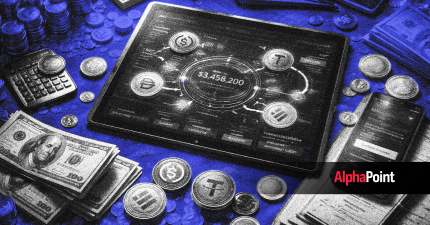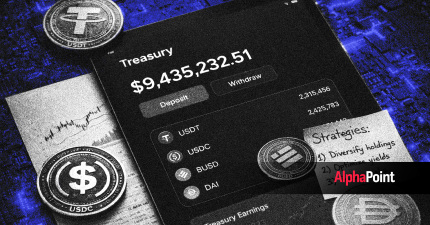Digital Asset Infrastructure: A Comprehensive Overview
With cryptocurrencies and digital assets on the rise, there is an increased need for the technology to support them.
Digital asset infrastructure is key to advancing usage of cryptocurrencies across the world. It’s a multi-faceted technological discipline embraced by cryptocurrency exchanges, crypto wallets, and liquidity providers (LPs).
In this guide, we’ll break down digital asset infrastructure and why it’s pivotal to the growth of the blockchain industry.
What Is Digital Asset Infrastructure?
Digital asset infrastructure refers to the technology used to support cryptocurrency development in capital markets. Generally speaking, it’s the framework that enables practical use of digital assets for users worldwide.
After the U.S. financial collapse in 2008, many people wanted an alternative to traditional asset classes and fiat currencies. They believed that governments shouldn’t have a monopoly on money management, and that led to the development of Bitcoin in 2009. Since then, thousands of cryptocurrencies, stablecoins, and altcoins have emerged.
Digital asset infrastructure is the skeleton supporting the widespread implementation of cryptocurrencies and other assets.
Essential Components of Digital Asset Infrastructure
Digital asset infrastructure is an umbrella term encompassing a wide range of financial frameworks and technology types.
Distributed Ledger Technology (DLT) and Blockchain
Distributed ledger technology is a decentralized, open-source ledger network that relies on the power of nodes to maximize transparency and security. Blockchain is a type of DLT and the backbone of cryptocurrencies and digital assets.
For example, Bitcoin and Ethereum transactions are recorded on a blockchain. These blockchains are immutable, meaning that once data is recorded and confirmed in a block, it can’t be altered retroactively. This immutability is crucial because it enhances the security and trustworthiness of the information stored on the blockchain.
This decentralized process takes place without the presence of financial institutions, banks, or federal governments.
Digital Exchanges
A digital exchange is a decentralized finance (DeFi) platform that allows the buying and selling of cryptocurrencies.
There are two types of digital exchanges: centralized cryptocurrency exchanges (CEX) and decentralized cryptocurrency exchanges (DEX).
Decentralized exchanges (DEX) operate without a central authority, giving users direct control over their funds and allowing for strict peer-to-peer (P2P) transactions on many crypto asset markets.
A single, central entity manages centralized exchanges (CEX), offering convenience but involving a third party in transactions. DEX emphasizes user autonomy, while CEX prioritizes ease of use through centralized control.
Integrated Market Infrastructure
Integrated market infrastructures are much more complex than digital exchanges. They include all the features buyers and sellers need to trade cryptocurrencies.
For example, over-the-counter (OTC) is a prominent feature of an integrated market infrastructure. This automation feature gives crypto traders the ability to trade large sums without disrupting the crypto market.
Ultimately, market infrastructure plays a role in the broader financial ecosystem by facilitating the trading, settlement, and regulation of digital assets. If you’re new to the crypto ecosystem, building an integrated market infrastructure may be a tall task, especially if you lack the financial resources and bandwidth.
With AlphaPoint, you can launch enterprise-grade crypto exchanges rapidly with our full-stack exchange software and infrastructure.
Liquidity Solutions
In a financial market, liquidity is the ease at which an asset can be converted into cash. In the crypto market, liquidity is high when buyers and sellers can trade positions quickly. This ensures that the market is moving quickly.
Slow-moving, low-liquidity crypto markets tend to be more volatile. This means that prices can spiral out of control and cause slippage, a major difference between the expected price of an asset and the actual price.
Building digital asset infrastructure requires securing liquidity from a financial institution or bank. By having a liquidity partner, an exchange can make sure that orders are fulfilled at breakneck speed and encourage other traders to join the market.
AlphaPoint provides deep liquidity on day one with our automated market-making software and managed liquidity options.
Payment Solutions
Payment solutions in digital asset infrastructure give people the opportunity to spend their cryptocurrencies in everyday settings. As the crypto industry grows in popularity, businesses need to adapt and accept real-time digital currency payments.
The problem is that many businesses don’t have cryptocurrency experts available to design fintech payment solutions. Relying on a white-label partner like AlphaPoint ensures that your businesses can accept, manage, and settle crypto debit cards across blockchains and geographies instantly.
Wallet Solutions
Wallet solutions fall under the category of crypto custody. Wallets store and hold cryptocurrencies securely. There are two types of crypto wallet solutions: cold and hot wallets.
Cold crypto wallets are digital hardware devices you can use to store your crypto assets. Hot wallets, on the other hand, are digital software solutions that hold your cryptocurrencies on a remote private server.
If you plan to build digital asset infrastructure, you can securely manage hundreds of tokens with our enterprise digital asset wallet and custody software.
Yield Platform
A yield platform offers end users the ability to earn a return on their assets through lending and staking capabilities.
Staking involves using a portion of a crypto user’s holdings to verify transactions and make a blockchain network stronger. In return for this use, a digital exchange will offer rewards to the user.
Digital exchanges also provide lending services, such as margin trading, where new users can borrow the funds to trade. Both give exchanges and crypto users a chance to profit from market growth.
Regulatory Compliance Frameworks
The crypto market is currently facing regulations from countries across the world. As such, a major part of digital asset infrastructure is adhering to regional and international regulatory compliance frameworks.
Security Measures and Cybersecurity Protocols
While blockchain technology is virtually unhackable, the same can’t be said for cryptocurrency-based businesses.
CEX platforms store customer funds and sensitive data on private servers. As a result, they must employ industry-leading security measures and cybersecurity protocols to keep this data secure.
Benefits of Digital Asset Infrastructure
Employing rigid digital asset infrastructure is key to advancing the causes of crypto projects around the globe. Here are some benefits to getting started.
Robust Security Measures
Digital asset infrastructures include a wide range of robust security measures, like encryption protocols, multi-factor authentication to keep customer data safe from unauthorized access, and decentralized storage.
These fortified security measures help maintain the digital assets’ integrity and foster trader trust.
For example, crypto exchanges regularly utilize Know Your Customer (KYC) to help reduce incidences of terrorist financing and money laundering schemes.
Reduced Operational Costs
Digital asset infrastructure can greatly reduce a crypto business’s operational costs. For example, if you hire a white-label partner, you can build a crypto exchange from ready-made software and launch your business. Otherwise, you would have to spend significant capital and time developing your own proprietary software.
Streamlined Asset Management Processes
Relying on digital asset infrastructure keeps asset management processes organized and convenient—which makes your crypto business more profitable.
For example, let’s say that you’re running a crypto exchange. If you have the infrastructure in place, you can offer your customers wallet solutions so they can make deposits and withdrawals with ease. By offering a built-in crypto wallet feature, your customers don’t have to look elsewhere for this service.
Global Accessibility
Digital asset infrastructure extends global accessibility, allowing users to access and transfer assets seamlessly across borders.
By utilizing the latest crypto technology, such as payment solutions, you can offer seamless crypto capabilities to a worldwide audience.
Reduced Counterparty Risk
Solid digital asset infrastructure can lower a crypto business’s risk of not meeting financial duties—ensuring they can fulfill obligations to users without defaulting.
For example, working with a crypto LP gives digital exchanges the liquidity to provide a top-notch trading experience for buyers and sellers, enhancing trust and reliability in financial transactions.
Speed to Market
Using reliable digital asset infrastructure is key to bringing your crypto venture to market at a quick pace.
One of the ways you can go to market efficiently is by hiring a crypto white-label partner like AlphaPoint. By becoming an AlphaPoint customer, you can customize any of our turnkey crypto solutions to build your business modularly.
Battle-Tested System
Having adequate digital asset infrastructure means you can put a battle-tested system in place to get your crypto venture off the ground. Successful digital asset infrastructure ultimately hinges on the white-label partner you use to get your business up and running.
AlphaPoint’s platform has been tried and proven for over a decade. We’ve obtained the highest levels of security certifications, including SOC 2 from a top 20 audit firm, demonstrating our commitment to protecting our clients’ data and assets.
We employ industry best practices for ongoing monitoring and product security to enable your business to grow with confidence. AlphaPoint provides digital asset infrastructure on a proven, customizable foundation and customers modify it to meet their needs with over 500 APIs.
How to Harness the Full Potential of Digital Asset Infrastructure
Digital asset infrastructure can be developed in two ways. You can either build yourself or rely on the expertise of a white-label partner.
If you don’t have the team, time, or financial resources to build an infrastructure from scratch, AlphaPoint may be your best option. With AlphaPoint, you can harness the full potential of your digital asset infrastructure by building on top of our ready-to-go crypto solutions.
We empower businesses to develop profitable crypto ventures that take less time to launch than do-it-yourself solutions.
AlphaPoint: Your Gateway to a Secure, Scalable, and Compliant Digital Asset Future
Overall, digital asset infrastructure is required for implementing cryptocurrencies and digital assets on a wide scale.
If your business needs turnkey crypto solutions to get off the ground, AlphaPoint is here for you. To learn more about our wide range of crypto services, request a demo today.
About the author
Matthew Moss, Director of Product at AlphaPoint, drives innovation for its digital assets infrastructure and white-label trading platform, leveraging over 20 years of expertise in financial services and digital trading systems. Connect with him on LinkedIn.


